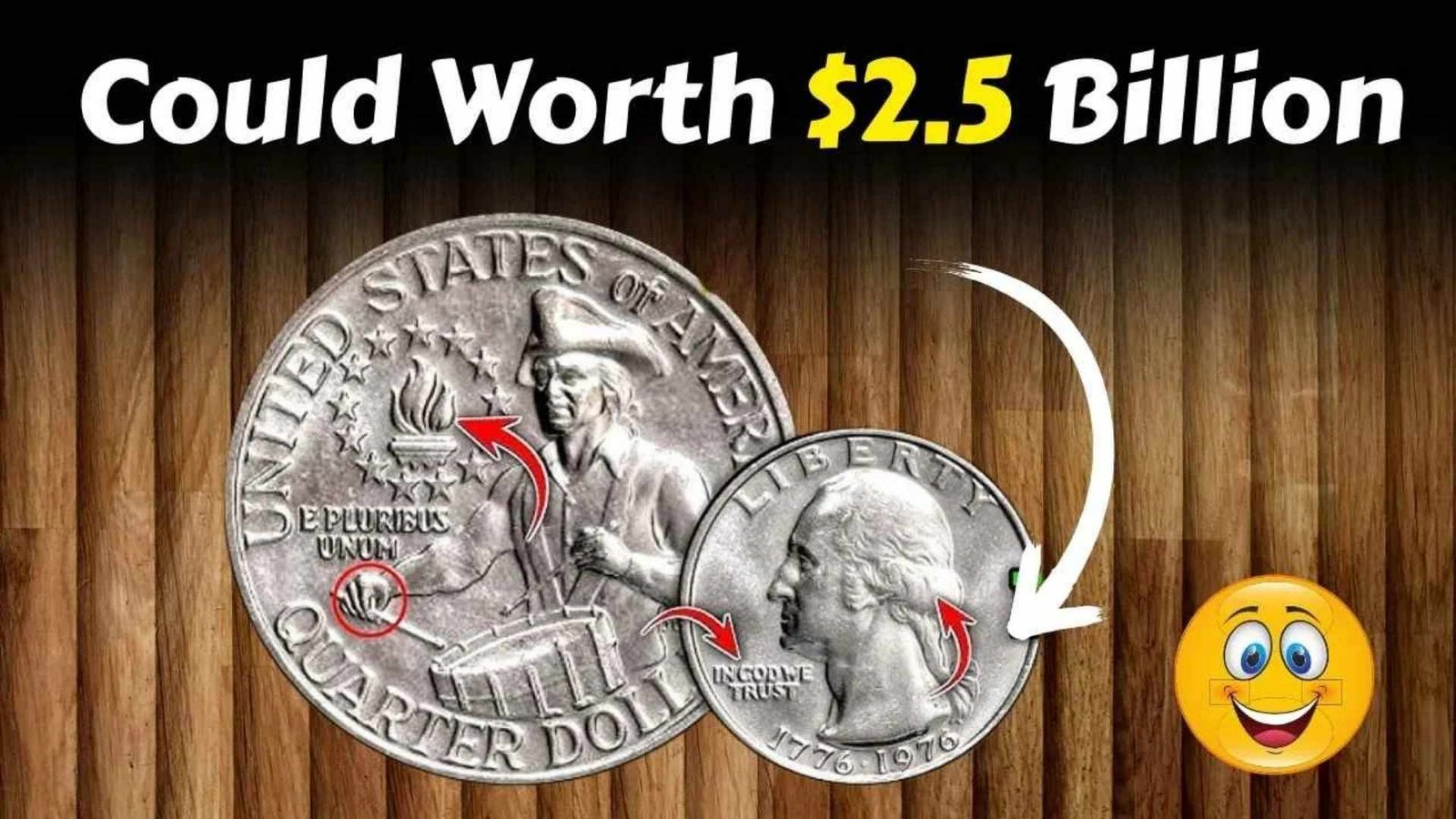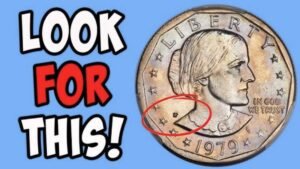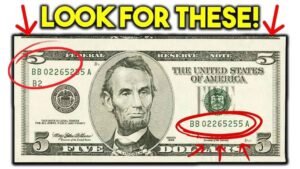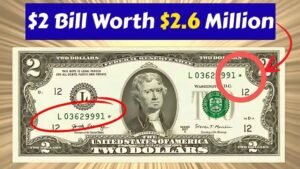What if the spare change in your pocket was worth more than your paycheck? Rumors of rare Bicentennial quarters worth up to $2.5 billion collectively have collectors and everyday people alike searching through their coins. The truth behind these quarters may surprise you — and you might just be holding one.
What Is a Bicentennial Quarter?
The Bicentennial quarter was issued in 1975 and 1976 to celebrate America’s 200th birthday. Unlike regular quarters, it features a unique drummer boy design on the reverse, created by Jack L. Ahr. More than 1.6 billion were minted, making them common — but some rare variations have turned ordinary coins into collector treasures.
The History Behind the Quarter
The Bicentennial celebration inspired special coinage: the quarter, half dollar, and dollar all carried patriotic designs. The quarter with the drummer boy quickly became the most recognizable. Most are only worth face value, but a few with minting errors, silver composition, or proof conditions are incredibly valuable today.
Types of Bicentennial Quarters
| Type | Mintage | Value Range |
|---|---|---|
| Clad Circulation Strike | 1.6B+ | 25¢ – $1 |
| 40% Silver Uncirculated | 11M | $5 – $25 |
| 40% Silver Proof | 4M | $10 – $40 |
| Error/Misprint Varieties | Very Low | $500 – $10,000+ |
Why Are Some Worth Millions?
While the majority of Bicentennial quarters are common, a select few have been appraised at jaw-dropping prices due to rarity. Some experimental strikes, high-grade proofs, and coins with dramatic errors have fetched five- and six-figure sums. Collectors estimate that the total market for rare Bicentennial quarters exceeds $2.5 billion worldwide.
How to Tell If You Have a Rare One
- Check the Mint Mark — Look for “S” (San Francisco) or “D” (Denver). Rare proofs often carry an “S.”
- Examine the Material — Silver quarters feel heavier and have a distinct ring when tapped.
- Search for Errors — Double strikes, off-center designs, or missing elements increase value dramatically.
Quick Value Guide by Condition
| Condition | Approximate Value |
|---|---|
| Circulated | $0.25 – $1 |
| Uncirculated | $5 – $50 |
| Error Varieties | $500 – $10,000+ |
| Rare Proofs | $1,000 – $20,000+ |
Fascinating Facts About Bicentennial Quarters
- They are the only U.S. quarters with dual dates (1776–1976).
- Silver Bicentennial quarters were sold in collector sets, not released into general circulation.
- Some error coins sold at auction have broken the $20,000 mark.
Expert Tips for Collectors
- Handle with Care — Use cotton gloves to avoid fingerprints.
- Get Certified — Coins graded by PCGS or NGC fetch much higher prices.
- Check Old Collections — Many families still have these coins tucked away in drawers or jars.
FAQs
Q: Are all Bicentennial quarters valuable?
A: No — most are worth face value, but rare errors and silver proofs can be worth thousands.
Q: How can I tell if mine is silver?
A: Silver quarters lack the copper-colored edge of clad coins. They also weigh slightly more.
Q: Should I sell or keep my rare quarter?
A: If it’s certified and in high demand, selling at auction can yield top dollar. Otherwise, values may rise over time.
Conclusion: Your Change Could Be Worth a Fortune
The rare Bicentennial quarter is proof that history and value can collide in the most unexpected places. While most quarters are common, a select few are worth staggering sums, contributing to a collective market estimated at $2.5 billion. So before you spend that 1776–1976 drummer boy coin, take a closer look — it could change your life.




